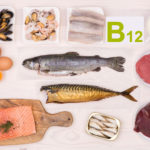Do You Need Vitamin B17?
What can you tell me about vitamin B17? I understand it protects against cancer. What dose should I take?
Andrew Weil, M.D. | December 6, 2017

There is no vitamin B17. The term is inaccurately applied to laetrile, a discredited cancer drug, and amygdalin, the natural substance from which laetrile is made. Because the FDA has not approved laetrile for any use in the U.S., its makers decided to call it vitamin B17. It has none of the characteristics of the 13 vitamins our bodies need for normal growth and development.
Amygdalin occurs in the seeds of apricots, peaches, and almonds. It can release cyanide when eaten, making it potentially toxic. Because of the lack of evidence for laetrile’s effectiveness plus the risk of serious side effects from cyanide poisoning caused by taking it orally, the FDA and the European Commission have banned its use. Although you can buy laetrile online, you should be aware that products may come from questionable sources and could be contaminated.
The notion that laetrile can prevent or treat cancer stems from the theory that cancer is caused by a vitamin deficiency. However, there is no scientific evidence that the body needs laetrile or that laetrile acts as a vitamin in humans or animals. Some laboratory studies have demonstrated positive effects against cancer cells, but animal studies found that laetrile was ineffective for treating, preventing or delaying the development of tumors.
In 1982, the National Cancer Institute (NCI) conducted a human study with 175 patients, most of whom had breast, colon or lung cancer. They were treated with amygdalin injections for 21 days, followed by oral doses, plus vitamins, pancreatic enzymes, and dietary changes. The NCI reported that tumor size decreased in one stomach cancer patient and this change lasted for 10 weeks while the patient remained on amygdalin therapy. But by the end of treatment period, cancer had progressed in about half the patients and within seven months after treatment ended, there was no measureable benefit in any of the patients.
Despite the lack of proof that laetrile/amygdalin can prevent or treat cancer, promoters continue to make unwarranted claims for it and to sell it as a dietary supplement for these purposes. I’ve also seen claims that these compounds can prevent and treat high blood pressure and arthritis, but I know of no scientific studies demonstrating that it is effective for these conditions.
Laetrile use has been linked to several cases of cyanide toxicity. Symptoms include liver damage, difficulty walking (due to nerve damage), fever, coma and death. According to the American Cancer Society (ACS), one case report suggests that vitamin C may increase the amount of cyanide released from laetrile in the body, raising this risk. In addition, the ACS warns that individuals who also eat raw almonds or crushed fruit pits while taking laetrile, as well as those who eat fruits and vegetables that contain the enzyme beta-glucosidase (found in celery, peaches, bean sprouts, and carrots), are more likely to experience toxicity.
Bottom line: “vitamin B17” offers no protection against cancer or any other disease. Avoid it.
Andrew Weil, M.D.
Source:
Milazzo and M. Horneber, “Laetrile treatment for cancer.” Cochrane Database of Systemic Reviews, April 28, 2015, doi: 10.1002/14651858.CD005476.pub4.













